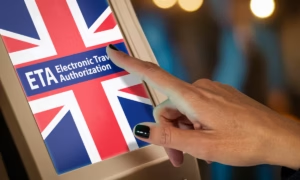The first legally binding international AI treaty will be open for signing on Thursday by the countries that negotiated it, including European Union members, the United States, and Britain, according to the Council of Europe human rights organisation.
TakeAway Points:
- The first legally binding international AI treaty has been slated to be open for signing on Thursday.
- European Union members, the United States, and Britain are part of its negotiation.
- The White House met with representatives from big tech companies and civil society activists to persuade US tech companies to provide additional digital bandwidth for government-funded internet censorship evasion tools.
International AI treaty
The AI Convention, which has been in the works for years and was adopted in May after discussions between 57 countries, addresses the risks AI may pose while promoting responsible innovation.
“This Convention is a major step to ensuring that these new technologies can be harnessed without eroding our oldest values, like human rights and the rule of law,” Britain’s justice minister, Shabana Mahmood, said in a statement.
The AI Convention mainly focuses on the protection of human rights of people affected by AI systems and is separate from the EU AI Act, which entered into force last month.
The EU’s AI Act entails comprehensive regulations on the development, deployment, and use of AI systems within the EU internal market.
The Council of Europe, founded in 1949, is an international organization distinct from the EU with a mandate to safeguard human rights; 46 countries are members, including all the 27 EU member states.
An ad hoc committee in 2019 started examining the feasibility of an AI framework convention and a Committee on Artificial Intelligence was formed in 2022, which drafted and negotiated the text.
The signatories can choose to adopt or maintain legislative, administrative, or other measures to give effect to the provisions.
Francesca Fanucci, a legal expert at ECNL (European Center for Not-for-Profit Law Stichting) who contributed to the treaty’s drafting process alongside other civil society groups, said that the agreement had been “watered down” into a broad set of principles.
“The formulation of principles and obligations in this convention is so overbroad and fraught with caveats that it raises serious questions about their legal certainty and effective enforceability,” she said.
Fanucci highlighted exemptions on AI systems used for national security purposes and limited scrutiny of private companies versus the public sector as flaws. “This double standard is disappointing,” she added.
The UK government said it would work with regulators, the devolved administrations, and local authorities to ensure it can appropriately implement its new requirements.
US calls on Big Tech to help evade online censors in Russia and Iran
The White House convened a meeting with representatives of Amazon.com, Alphabet’s Google, Microsoft, Cloudflare, and civil society activists on Thursday in a bid to encourage U.S. tech giants to offer more digital bandwidth for government-funded internet censorship evasion tools.
The tools, supported by the U.S.-backed Open Technology Fund (OTF), have seen a surge of usage in Russia, Iran, Myanmar, and authoritarian states that heavily censor the internet.
OTF’s pitch to tech companies at the meeting was to help offer discounted or subsidized server bandwidth to meet the fast-growing demand for virtual private network (VPN) applications that OTF funds, the organisation’s president, Laura Cunningham, said.
“Over the last few years, we have seen an explosion in demand for VPNs, largely driven by users in Russia and Iran,” Cunningham said. “For a decade, we routinely supported around nine million VPN users each month, and now that number has more than quadrupled.”
The essence of VPN
VPNs help users hide their identity and change their online location, often to bypass geographic restrictions on content or to evade government censorship technology, by routing internet traffic through external servers outside of that government’s control.
The OTF specifically backs VPNs that are designed to work in states that restrict access to the internet. The U.S. injected increased funding into VPNs supported by the OTF following Russia’s invasion of Ukraine in 2022, Reuters exclusively reported at the time.
The organisation has since received a boost to its budget from the U.S. State Department via its “Surge and Sustain Fund for Anti-Censorship Technology”, an initiative created at the Biden administration’s Summit for Democracy.
But it has struggled to meet increased demand in countries like Russia, Myanmar, and Iran, where internet censorship heavily restricts access to outside information.
Around 46 million people a month now use U.S.-backed VPNs, Cunningham said, but added that a sizeable chunk of the budget was taken up by the cost of hosting all that network traffic on private sector servers.
“We want to support these additional users, but we don’t have the resources to keep up with this surging demand,” she said.
A Cloudflare spokesperson said the firm was working with researchers to “better document internet shutdowns and censorship.”



































